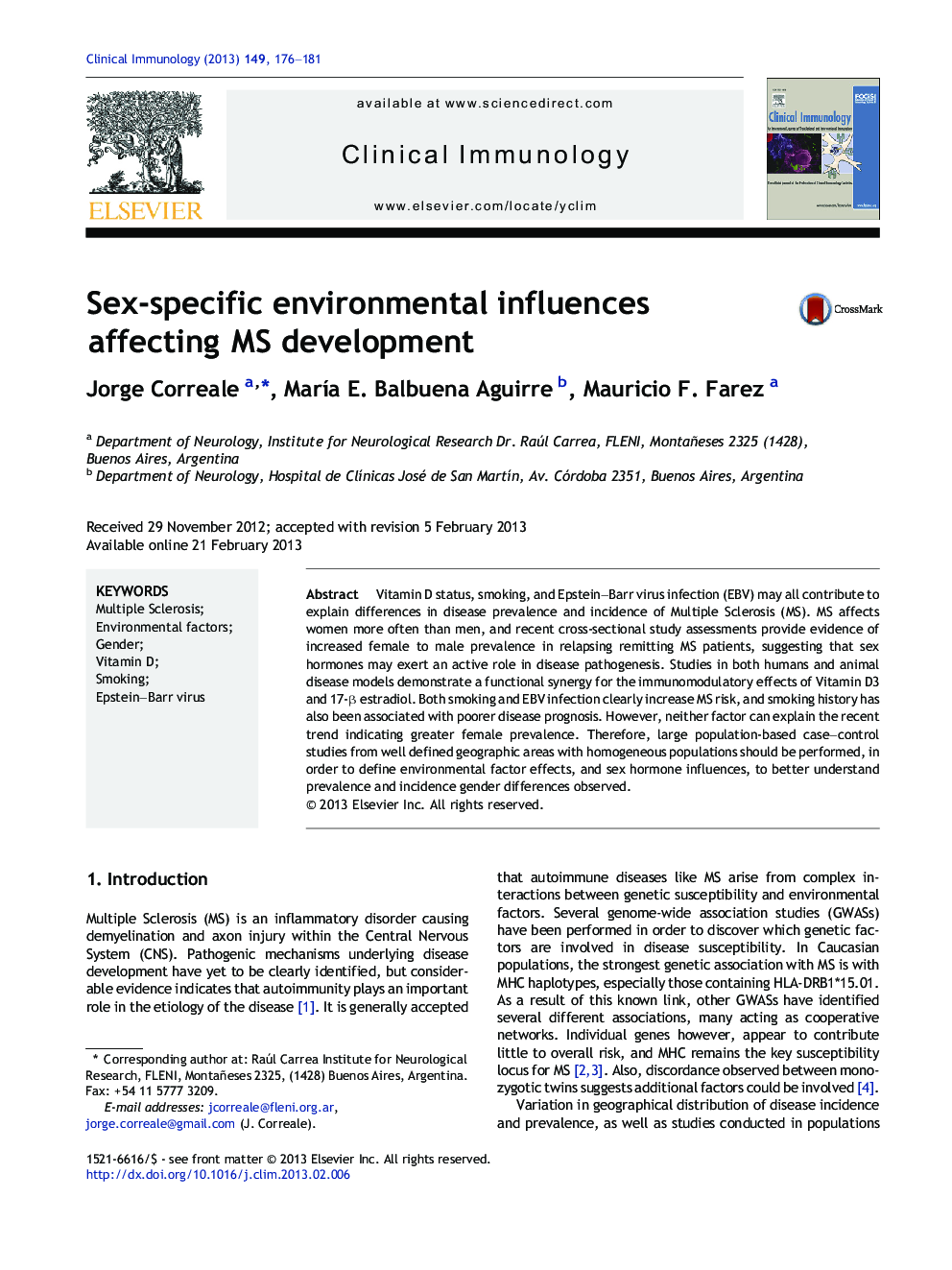| Article ID | Journal | Published Year | Pages | File Type |
|---|---|---|---|---|
| 3256898 | Clinical Immunology | 2013 | 6 Pages |
Vitamin D status, smoking, and Epstein–Barr virus infection (EBV) may all contribute to explain differences in disease prevalence and incidence of Multiple Sclerosis (MS). MS affects women more often than men, and recent cross-sectional study assessments provide evidence of increased female to male prevalence in relapsing remitting MS patients, suggesting that sex hormones may exert an active role in disease pathogenesis. Studies in both humans and animal disease models demonstrate a functional synergy for the immunomodulatory effects of Vitamin D3 and 17-β estradiol. Both smoking and EBV infection clearly increase MS risk, and smoking history has also been associated with poorer disease prognosis. However, neither factor can explain the recent trend indicating greater female prevalence. Therefore, large population-based case–control studies from well defined geographic areas with homogeneous populations should be performed, in order to define environmental factor effects, and sex hormone influences, to better understand prevalence and incidence gender differences observed.
► MS likely results from an interaction between genetic and environmental factors. ► Vitamin D, smoking, and EBV are the main environmental factors associated with MS. ► Functional synergy between Vitamin D3 and 17-β estradiol effects has been observed. ► Both smoking and Epstein-Barr virus infection increase the risk of MS. ► Smoking and EBV infection cannot explain the female to male ratio increase in MS.
